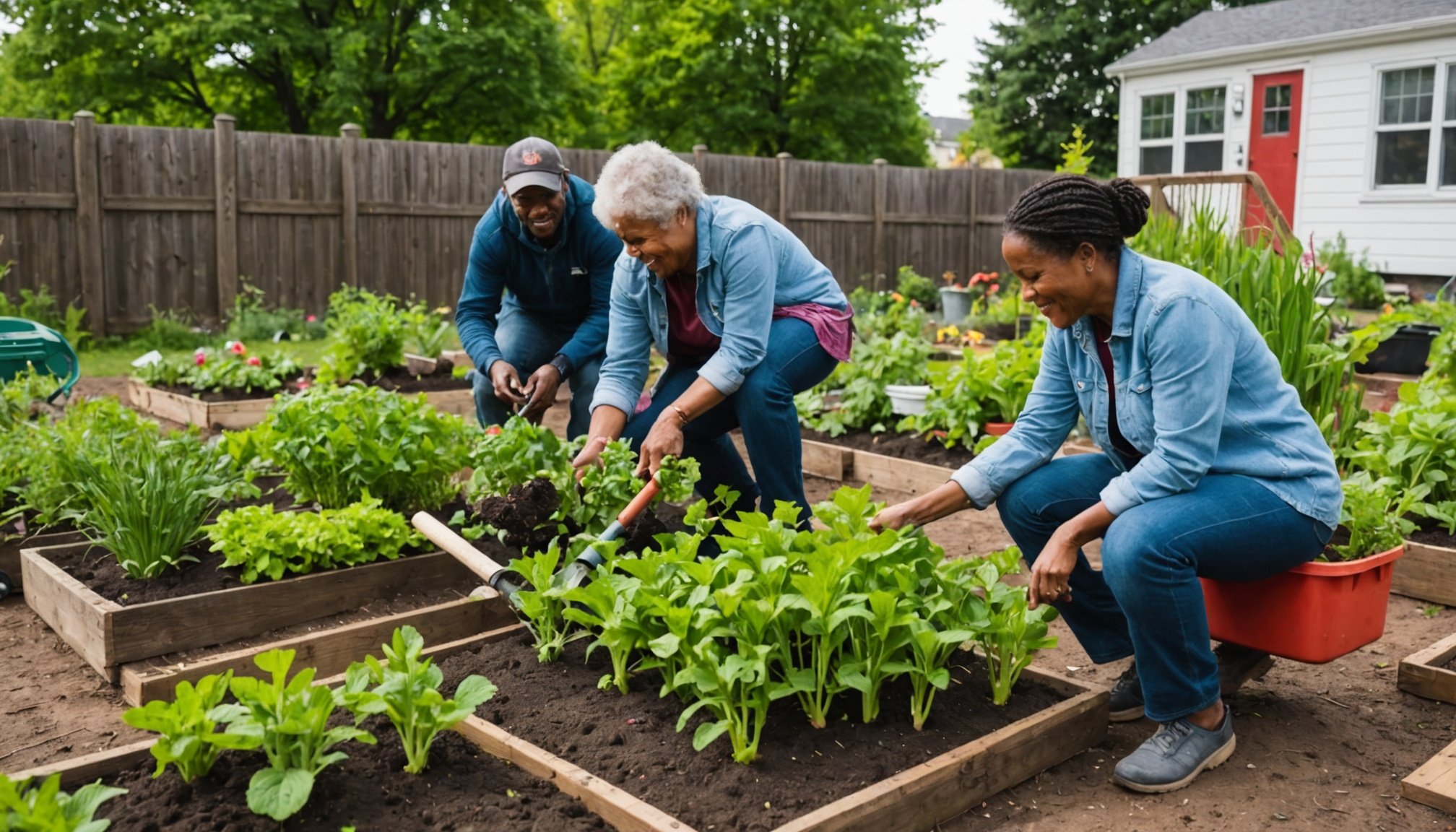The Psychological Benefits of Community Gardening
Community gardening offers a multitude of mental health benefits by significantly reducing stress and anxiety. Immersing oneself in nature fosters a sense of calm and enhances psychological well-being. Gardening provides an accessible way to connect with the earth, offering therapeutic relief from the fast pace and demands of modern life. Numerous studies show that spending time in gardens can lower cortisol levels, the hormone related to stress. Emotional stability is often achieved through the nurturing act, allowing individuals to find solace while cultivating plants.
Additionally, the impact of nature on mental health is profound. Engaging with natural elements promotes mindfulness and encourages a break from negative thought cycles. This connection with the environment can be transformative, improving one’s emotional health over time.
Additional reading : Mastering Hands-Only CPR: Top Strategies for Public Education Success
Personal testimonials frequently reveal the positive transformations community gardening can bring. Individuals describe feelings of achievement and satisfaction derived from seeing their gardens grow. Many report that gardening has helped them manage symptoms of anxiety and depression more effectively. The shared experience of growth nourishes not only plants but minds, creating an oasis of peace and mental restoration.
The gentle rhythm of gardening becomes a meditative practice, nurturing both the garden and the gardener’s soul.
Also read : Unlocking Peak Recovery: Top Techniques for ACL Rehab Success in Female Athletes
Fostering Social Connections through Gardening
Community gardening serves as an exceptional platform to build social connections and foster community building. It offers an inviting space where individuals from diverse backgrounds can come together, united by the shared love of nurturing the earth. This environment naturally nurtures relationships, encouraging engagement and collaboration among participants.
Building relationships among participants
Participants in community gardens often find themselves part of a supportive network. As they work side by side, they share stories and techniques, deepening the familial atmosphere. This sense of belonging contributes to emotional well-being and alleviates loneliness.
The role of teamwork in community gardens
Teamwork is intrinsic to community gardens, as it involves communal planning, planting, and maintenance. Through these collaborative efforts, participants develop essential social skills and mutual trust, vital for community building.
Sharing experiences and knowledge
The communal space of a garden serves as a fertile ground for sharing knowledge and experiences. Seasoned gardeners pass on their expertise, while newcomers bring fresh perspectives. This exchange not only enhances relationships but also enriches the gardening experience, fostering a strong community spirit. Community gardening, therefore, evolves into a vibrant hub of learning and social interaction.
Case Studies Demonstrating Positive Outcomes
Community gardening case studies illuminate a spectrum of success stories and underscore the transformative impacts of urban gardening initiatives. One well-documented instance is the transformation of neglected urban spaces into lush community gardens. These efforts not only beautify areas but build environments where connections flourish and well-being is enhanced.
Several projects reveal how neighborhoods have thrived, combating urban isolation through gardening activities. Engaging in these initiatives often leads to measurable improvements in people’s lives, offering joy and a tangible sense of community.
By analysing participant feedback, insights emerge on how such gardening efforts instil a sense of achievement. Participants frequently report elevated well-being, noting how nurturing plants becomes a metaphor for personal growth and exercising sustainability in real life.
Community responses further illustrate the societal values of these gardens, acknowledging the unity developed through shared purposes. Evaluations of these projects often cite increased happiness and enriched relationships among participants as key metrics of success.
Thus, community gardening case studies serve as powerful testimonials, demonstrating how gardens can transform landscapes, nurture individual growth, and forge strong communal ties. These success stories inspire continued investment in urban gardening initiatives for broader communal benefits.
Practical Tips for Getting Involved
Engaging with a community garden can be a fulfilling journey, offering numerous psychological well-being and social connections. Here’s how you can get involved effectively.
Finding Local Community Gardens
Start by researching online or visiting local community centres to identify nearby community gardens. Many cities have directories dedicated to locating these spaces. Engage with local gardening groups on social media to gain insights and recommendations.
Steps to Start Your Own Gardening Initiative
Initiating a community garden begins with choosing a suitable, accessible piece of land. You’ll need to obtain permissions and support from local authorities and your neighbourhood. Organise informational meetings to rally community support and gather like-minded individuals interested in participating.
Best Practices for Participation and Engagement
Success in community gardening largely depends on relationships and active community building. Maintain open communication through regular meetings and create a shared calendar for tasks. Encourage the exchange of knowledge and ideas to foster a sense of ownership. Celebrate milestones together, which strengthens bonds and boosts morale.
Embrace these strategies to unlock the profound mental health benefits and create lasting social connections through community gardening. By engaging thoughtfully, you’ll nurture not just plants, but also a prospering community network.






